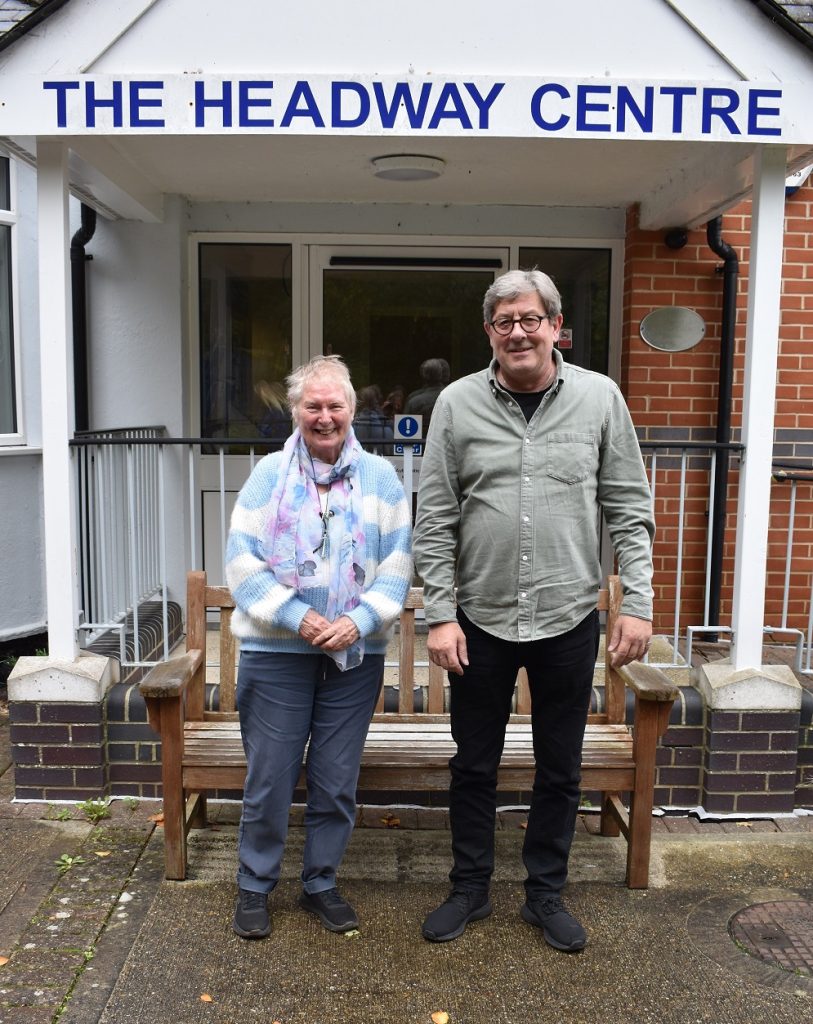
Headway Essex relies on the generosity of volunteers to help us to deliver our services to adults with acquired brain injury and their families. Our volunteers come from many backgrounds and will all have different reasons for volunteering with us. The overarching motivation though is to give something back. In return, being a volunteer can bring a sense of purpose and connectivity which has its own rewards.
MEET CHRIS AND DIANE
Diana Hayter and Chris Sweeney are joining our team of volunteers to help at our Support Group in Colchester. They kindly talked to us about what brought them to volunteering.
Chris and Diane are both familiar with Headway Essex through attending our Support Group meetings. They talked with good humour and humility about their brain injuries and the experiences of recovery. Both have different stories with over lapping themes.
Chris and Diane joined Headway Essex following the Pandemic. Experiencing the pressures of Lockdown had made the feelings of isolation worse and being unable to freely access GP services during this time was frightening. Chris in particular went from being in a specialist brain injury rehabilitation centre, where he received regular medical checks and monitoring, to being in a situation where he was unable to see his doctor. For someone recovering from a serious brain injury this is a scary prospect.
THE FIRST STEPS
Diane remembered the first day that she went to Headway. It was raining and she was soaked through when she got to the centre but she said walking through the door felt like coming home. She described the relief and feeling of safety of being with people who just knew what she was going through.
Chris was more reluctant to go and said that having a brain injury left him feeling disenfranchised and not part of things he previously had in his life. He explained that he saw a club as going to do something he enjoyed, such as music, and he very much didn’t want to join a brain injury ‘club’. Fortunately he did change his mind. He felt his world opening up and found he could talk and relate to the other members.
The support group has given them not only the practical skills they need to navigate their recovery but also the ability to ask for help if it is needed. Not being able to ask for help is a big barrier to moving forwards. Diane said ‘you are taught to stand on your own two feet from childhood but standing on your own two feet can be disabling when you really need to reach out.’
ON TO VOLUNTEERING
Sam Preston who runs the support group is delighted to have Chris and Diane’s input to the meetings. Recognising the confidence and skills they have rebuilt to get to this point, she has encouraged them to take this first step into volunteering.
Not only will they bring their practical skills to the group, more importantly they can offer reassurance to anyone new joining with their experience – lived experience of recovering from a brain injury and understanding how important it was to them to find a safe place and people that they can be themselves with.
What Chris and Diane will bring to the group is evident but what will the experience of volunteering bring to them? When asked what their world would have been like without the support group they immediately said ‘lonely’. Volunteering for Chris will be like baby steps and he is open to seeing where it leads to. ‘It is like opening a door’.
